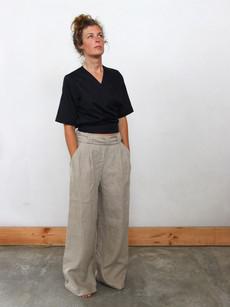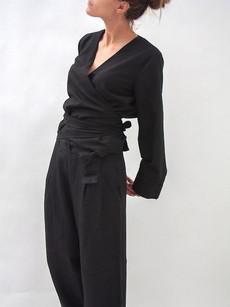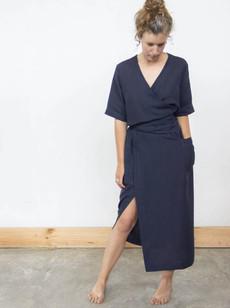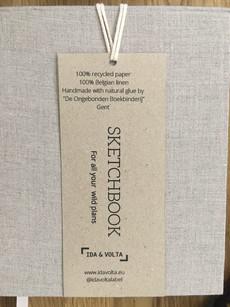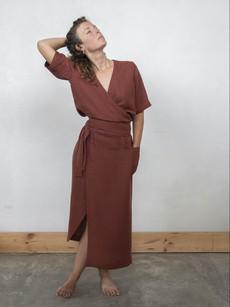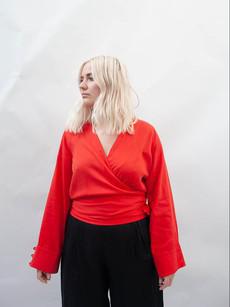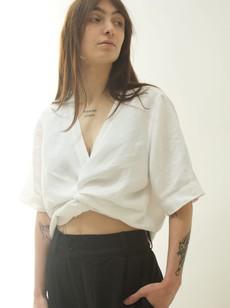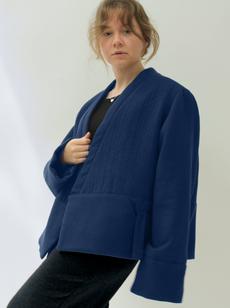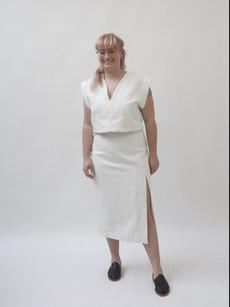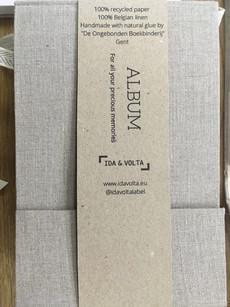- Clothes
- Bags
- Accessories
-
Inspiration
- Shoes
Shop Ida&Volta
Ida&Volta is a brand founded by two Belgian designers. It is a real slow fashion brand with items that contain a lot of care and love. The items are a timeless investment that you can enjoy for a lifetime.
Fairly produced: Johanna works from a studio in Ghent, where she mainly works on summer items together with a seamstress in Ghent. The knitwear is produced in Antwerp. Laure, the other co-founder, works from her off-grid studio in Portugal, together with a local seamstress there, mainly on winter pieces. The co-founders work with small self-employed people who they guarantee a more than decent wage for their work. They always talk to them about how many hours they need to finish something and whether they can get by with this, and this is always negotiable.
Environmentally friendly: Ida&Volta mainly uses linen and wool. The flax comes from Belgium/France and is woven and dyed in Belgium. The wool comes from sheep in the Portuguese region of Serra da Estrella and the production process into fabric is done entirely on site. In addition, they work with a small edition of GOTS certified organic cotton that mainly comes from Uganda, sometimes from Israel. Other natural and sustainable materials that Ida & Volta sometimes use are Tencel, which is woven and dyed in a closed-loop system in Germany. Finally used; Peace silk that is woven by women in India in an honest way and where the moth is given time to develop into a butterfly; recycled cashmere; Mulesing-free Merino wool from Germany. The items are made as much as possible from the same material to guarantee biodegradability and recyclability. They stitch with cotton yarn, the labels are cotton, the buttons are biodegradable (from the Corozo nut), they do not use plastic or metal anywhere, so no zippers and no adhesive interfacing. In addition, they are increasingly working with undyed fabrics, because this is also a very polluting aspect of the industry. They already work with undyed linen and wool.
Ida & Volta does a lot of research into the origin of the materials for each material. For example, they want to ensure a fair and sustainable origin, and they can be transparent about the entire chain.
Locally produced: Production takes place in Belgium and Portugal, as close as possible to the most used material source (Belgian linen and Portuguese wool).












